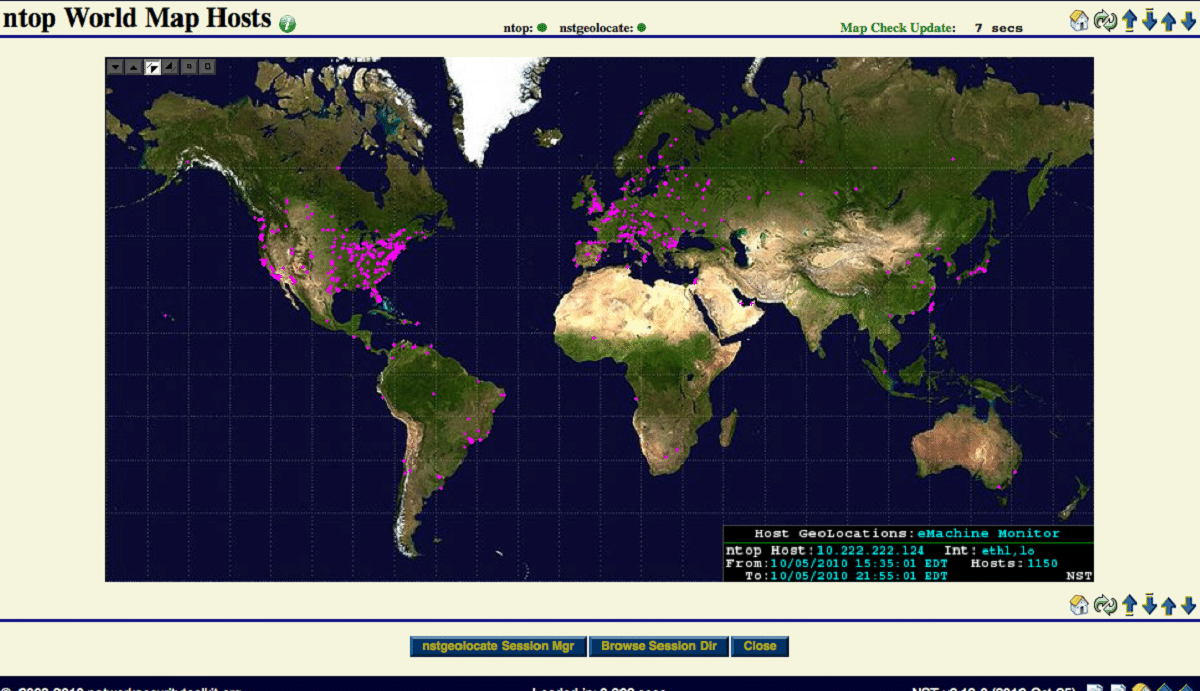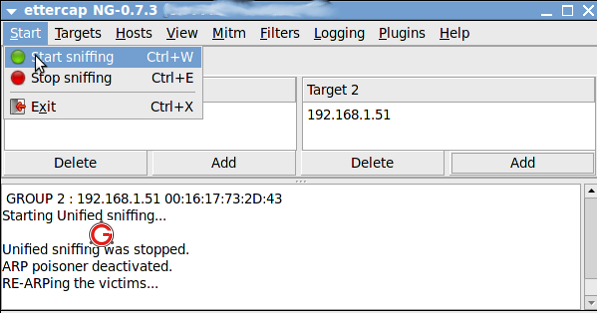
Ssh-copy-id node.kb. Step 6: Create an InventoryĪn inventory list is created to identify your managed nodes. Then, copy the public key and paste it to our Managed node with the command below.

Now, run the following command (in the control node) to generate an SSH key pair. Then, ensure that you set up an SSH key pair to the Simplilearn user. Simplilearn user) so that it can access the Managed node without a password. Passwd Step 5: Configure Our Admin User for SSH AccessĬonfigure the admin user (i.e.
How to install ettercap centos password#
Passwd the admin user, and set a password onto your Managed node. Also, you should ensure that you use the same username on both the nodes (i.e., controller node and your managed node).Īdd a user and set a password onto your Controller node. In this demo, we will use "Simplilearn"' as the username (but any username can be added). Let's create a non-root user on both the nodes that will run our Ansible playbooks. Yum install ansible Step 4: Create a User for Ansible The next step is to install the Ansible package from the EPEL repository. Moving on, install the EPEL repository on the system.ĮPEL provides easy access to install commonly used packages on CentOS.
How to install ettercap centos update#
Yum update Step 2: Install EPEL Repository

Enter the command mentioned below to start your task.

Step 1: Update Your Control Nodeīefore installing any new software, it is important to ensure that your existing operating version is up-to-date. Now, let's get started on this and understand the Ansible installation process in detail. Let's name our first machine, as ‘Server’ that will act as our managed node, and the second machine named ‘Node’ that will act as the controller node. While installing Ansible, it's essential to have two machines.


 0 kommentar(er)
0 kommentar(er)
